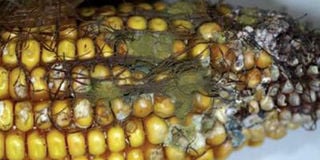Prime
MPs task Health ministry to address aflatoxin risks

Aflatoxins are a family of toxins produced by certain fungi. PHOTO/FILE.
What you need to know:
- Mr Andrew Ojok Oulanyah (Omoro) asked what the officials were doing to address the current overwhelming cases at the Uganda Cancer Institute.
- The director of health services (clinical) at the Ministry of Health, Dr Charles Olaro, advised the public to observe the basic measures of washing foods, which helps remove some toxins and desist from the habit of storing food for long periods.
Members of Parliament have asked the Health Ministry and the Uganda Cancer Institute (UCI) to avail practical solutions aimed at mitigating the increasing cancer burden caused by fungal toxins commonly termed as aflatoxins.
The deputy chairperson of Parliament’s Health committee, Mr Samuel Acuti Opio (Kole North), asked what robust campaigns are being fronted to sensitise the public over aflatoxins that contaminate particular agricultural foods and eventually cause liver cancer, among other diseases.
He directed his concern to officials from the ministry and the institute who interfaced with lawmakers from committees of Health and Agriculture yesterday.
“We have a wide range of foods that people are exposed to on a day-to-day basis such as maize, fruits, milk and eggs, and we are looking at children who are at a very high risk of exposure to aflatoxins,” Mr Opio said.
“There is a lot of research regarding aflatoxins but whereas there is a lot of information and data, very little action is being taken on management and preventive measures,” he added.
Mr Andrew Ojok Oulanyah (Omoro) asked what the officials were doing to address the current overwhelming cases at the Uganda Cancer Institute.
In response, the State Minister for Primary Healthcare, Ms Margaret Muhanga, confirmed that aflatoxins are nearly responsible for one in four cases of liver cancer, the seventh-ranking cancer in Uganda.
UCI, Ms Muhanga explained, receives 170 to 200 liver cancer cases annually at the institute, of which an estimated 48 to 56 cases result from aflatoxin exposure.
“This food that is being sold with aflatoxins, the motivation for selling it is money. People have commercialised everything. You see that your beans are contaminated [and] you take them to the market? Nowadays, they mix [the bad] beans with the good beans. That is how we consume those aflatoxins,” she said.
While acknowledging the fact that cancer remains a big burden in the country, UCI executive director Dr Jackson Orem said they are moving to construct cancer regional centres so as to decongest the main facility in Kampala.
“The Ministry of Finance has already identified funders for these regional cancer centres,” Mr Orem said.
The director of health services (clinical) at the Ministry of Health, Dr Charles Olaro, advised the public to observe the basic measures of washing foods, which helps remove some toxins and desist from the habit of storing food for long periods.
The meeting was a follow-up of Tuesday’s interface where experts from Makerere University informed the MPs that school stores were breeding grounds for aflatoxins, which were impacting the health of many learners.
The committee will continue meeting other stakeholders before drafting a report to present to the House at an unspecified date.




